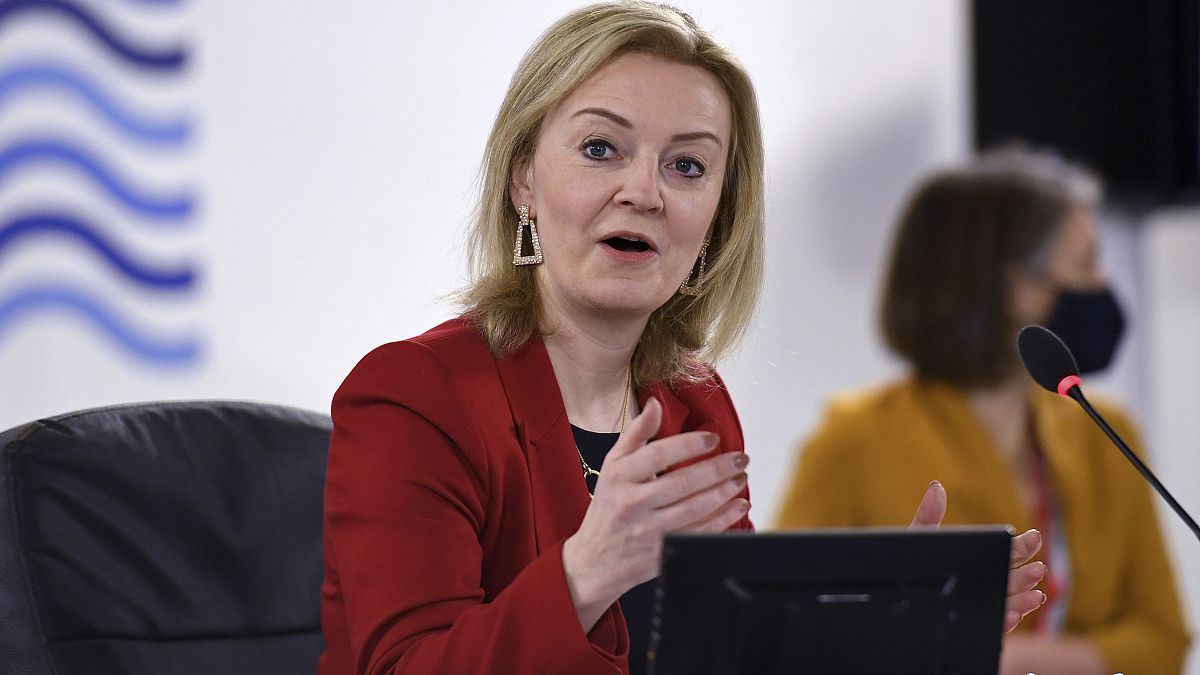Truss was appointed to lead the UK's post-Brexit negotiations after the surprise resignation of Lord David Frost.
The United Kingdom's new Brexit minister wants dialogue over Northern Ireland issues to be sped up but warned that London's position "has not changed".
Liz Truss was tasked with leading the post-Brexit negotiations with the European Union on Sunday following the surprise resignation of Lord David Frost.
Frost, who had been in the position since July 2019, is thought to have left because of concerns about the government's "direction fo travel" on certain issues, including COVID-19.
In a statement released on Tuesday following her first phone call with the EU's Brexit negotiator, Maros Sefcovic, Truss said the UK "wants a constructive relationship with the EU, underpinned by trade and our shared belief in freedom and democracy".
She also stressed that "the UK position has not changed". "We need goods to flow freely between Great Britain and Northern Ireland, end the role of the European Court of Justice (ECJ) as the final arbiter of disputes between us, and resolve other issues".
"We must pick up the pace of talks in the New Year," she urged, adding that the UK's "preference remains to reach an agreed solution".
Truss, 46, has been given the portfolio on top of her current role as the UK's foreign affairs minister.
Commentators were split over what signal her appointment meant for negotiations. Some saw it as a sign that London was ready to soften its stance — Truss campaigned for the UK to remain in the EU ahead of the 2016 referendum — while others forecasted she would harden her stance in order to win over Eurosceptics as she is tipped to one day become the leader of the Conservative party.
Her statement saw her reiterate a threat her predecessor made often to trigger Article 16 to unilaterally suspend parts of the Northern Ireland Protocol.
The UK and EU agreed to keep Northern Ireland in the bloc's single market for goods in order to avoid the erection of a physical border between the province and the Republic of Ireland, an EU member state, which both London and Brussels thought would endanger peace on the island.
This has created a de-facto border in the Irish Sea between Great Britain and Northern Ireland.
Brussels has rejected calls by London to reopen the Protocol for negotiations and called for changes to be made "within the frameworks" of the treaty.
It has offered concessions such as allowing the UK to unilaterally waive customs checks on certain goods between Northern Ireland and Great Britain and last week unveiled proposed legislation that would facilitate imports of UK medicines into Northern Ireland.
It also has stood firm on the ECJ's role.
Sefcovic, meanwhile, also said after their conversation that "the EU's position is known: stability and predictability".
"I'm committed to continue working towards a conclusive understanding with the UK on practical solutions for Northern Ireland stakeholders," he wrote on Twitter.
